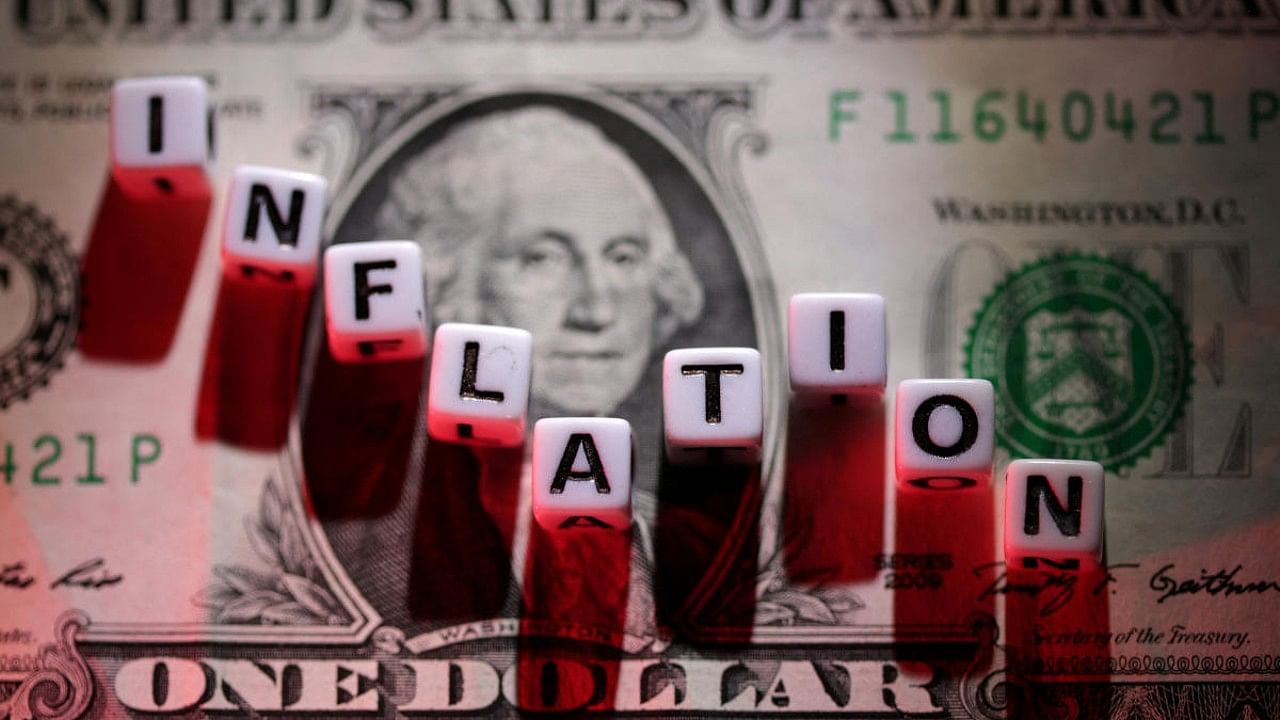
US inflation eased slightly in July, according to official data Wednesday, potentially taking pressure off the Federal Reserve to hike interest rates sharply while bringing a much-needed boost to President Joe Biden just months before crucial midterm elections.
With energy costs dropping in recent weeks, the consumer price index dipped to an annual rate of 8.5 percent last month, the Labor Department reported, lower than markets were projecting.
Fueled by aggressive consumer spending of pandemic savings, global supply chain snarls, domestic worker shortages and Russia's war on Ukraine, inflation soared 9.1 percent on-year in June, the highest in 40 years.
But the CPI was unchanged compared to June, a dramatic decline from the big increase in the prior month and defying expectations of a modest rise.
And when volatile food and energy prices are excluded from the calculation, the so-called core CPI rate rose just 0.3 percent -- the smallest in four months, according to the report.
Soaring prices have continued to climb in the United States, squeezing family budgets and, by extension, Biden's popularity.
But the White House cheered the report.
"Our economy had zero percent inflation in July. ZERO PERCENT," White House economic spokeswoman Emilie Simons tweeted.
"No doubt there is more work to do, but we are on the right track," she added.
Biden's opponents accuse the president of precipitating inflation with a gigantic $1.9 trillion coronavirus relief package, enacted in March last year shortly after assuming office.
And Republicans renewed their criticism of Biden's economic policy, warning that Sunday's passage in the Senate of his massive climate and health care bill titled the "Inflation Reduction Act," would do the opposite of its stated purpose.
But the devil is in the details.
Economists caution against taking too much solace from a single good report, and they worry that the inflation slowdown linked to the drop in gasoline prices could be outweighed by rising rent and real estate prices.
The question now facing Washington is whether it will be possible to bring inflation down without plunging the world's largest economy into recession, after two quarters of economic contraction in the first half of the year.
In a bid to tamp down inflation, the Fed has already hiked the interest rate four times to a range of 2.25 to 2.5 percent, including two consecutive 75-basis-point increases.
Fed officials have made it clear that a third jumbo rate increase remains on the table at next month's policy meeting.
"One month's data is too volatile to call a peak in inflation," said Joseph Gagnon of the Peterson Institute for International Economics.
"If August data are the same, it takes 75 basis points off the table for September," Gagnon, a former Fed economist, said on Twitter.
Fears that Wednesday's reading would come in above forecasts and make the big Fed move all the more likely weighed on equities in Asia and Europe, with most markets in the regions falling into the red before the report.
But European exchanges jumped after the data were released, and Wall Street soared after trading opened, with the benchmark Dow gaining nearly 500 points.
The US economy continues to add jobs and in July the unemployment rate fell to the pre-pandemic level of 3.5 percent.
But there are still nearly two jobs open for every available worker, and labor costs have risen sharply, which pushes wages up and contributes to inflation.
Rubeela Farooqi of High-Frequency Economics cautioned that despite the slower pace of inflation, "prices remain uncomfortably high."
"Coupled with strength in job growth and wages, the data support the case for another aggressive rate hike in September," she said in an analysis.